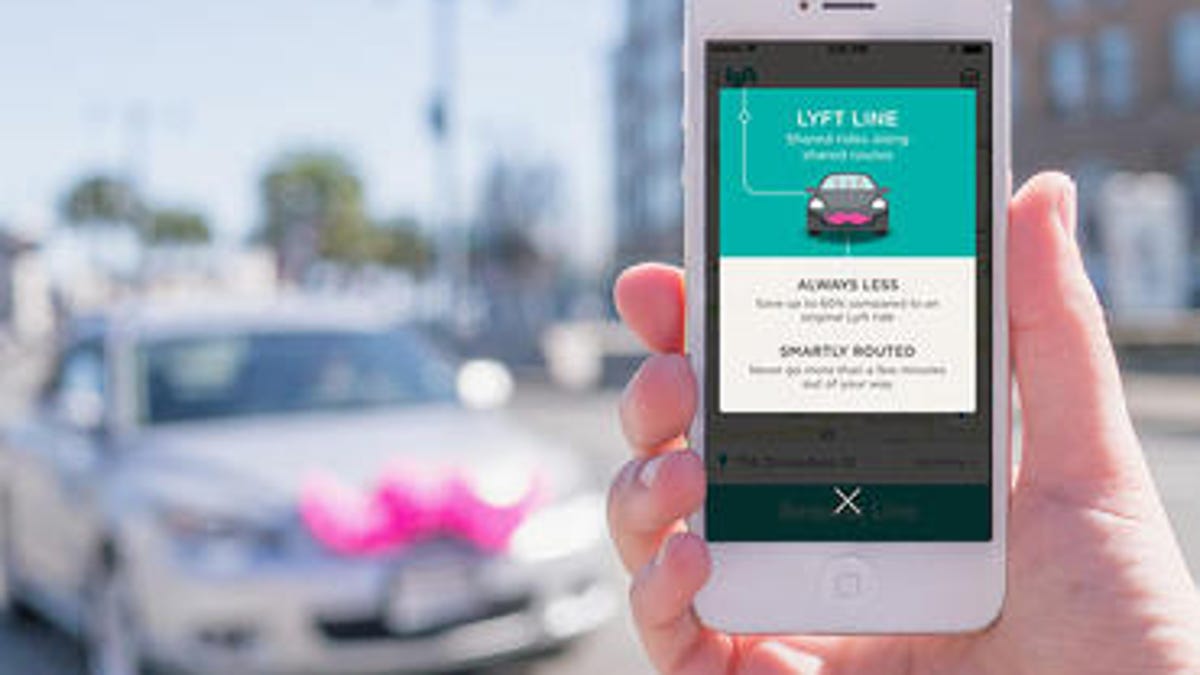GM taps Lyft in big push for self-driving cars
The automaker ponies up $500 million as it and the ride-sharing startup look toward a future of on-demand cars that don't need anyone behind the steering wheel.
In the future your Lyft ride could be a Buick that shows up with no one in the driver's seat.
US carmaker General Motors said Monday that it is investing $500 million in ride-hailing service Lyft in an effort to develop driverless, on-demand vehicles. The two companies will set up joint research teams to work on the robo-cars, and General Motors will take a seat on Lyft's board.
Self-driving cars have captured the imaginations and research dollars of nearly every traditional automaker and many companies in Silicon Valley, including Lyft rival Uber and electric-car maker Tesla Motors. At the forefront of the movement has been Google, with its podlike vehicles now a regular sight on the streets of Mountain View, California.
Uber and Lyft, meanwhile, have shaken up the taxi business by making hailing and paying for a ride as easy as just a few taps on a smartphone app.
"We see the future of personal mobility as connected, seamless and autonomous," GM President Dan Ammann said in a statement. "With GM and Lyft working together, we believe we can successfully implement this vision more rapidly."
Companies including Toyota and Nissan have mentioned 2020 as the date by which they hope to have their driverless vehicles in the driveways of consumers. GM and Lyft did not say when they expect their partnership to get robo-cars on the road.
GM did tell CNET that in late 2016 it will deploy a fleet of autonomous Chevrolet Volts within its Technical Center Campus in Warren, Michigan.
The tie-up between GM and Lyft is an uncommon one between a startup and an established auto company. For GM, the investment could provide some protection amid signs that car ownership could decline with the growing use of ride-hailing services and, eventually, the arrival of self-driving cars.
Those two trends could well overlap. GM's Ammann believes on-demand ride services will account for the first major deployment of autonomous cars, according to The Wall Street Journal.
As a prelude to that, Lyft drivers starting now will be able to make short-term use of GM cars through rental hubs in the US. In addition, they and their customers will have access to GM's in-car OnStar concierge service.
The partnership will provide a big boost to Lyft, which has generally played second fiddle to fellow San Francisco-based startup Uber. While Uber has expanded internationally, operating in 58 countries and 300 cities worldwide, Lyft's business is restricted to only 65 US cities. In addition, Lyft has attracted $2.01 billion in total funding compared with Uber's $6.61 billion.
Uber has already pledged to work on developing its own driverless cars, setting up a research center at Carnegie Mellon University. But while it has been snapping up mapping experts, it has yet to publicly secure any industry partnerships like Lyft.
Other driverless car initiatives are expected to be announced by automakers at CES in Las Vegas this week and at the Detroit auto show later this month.


